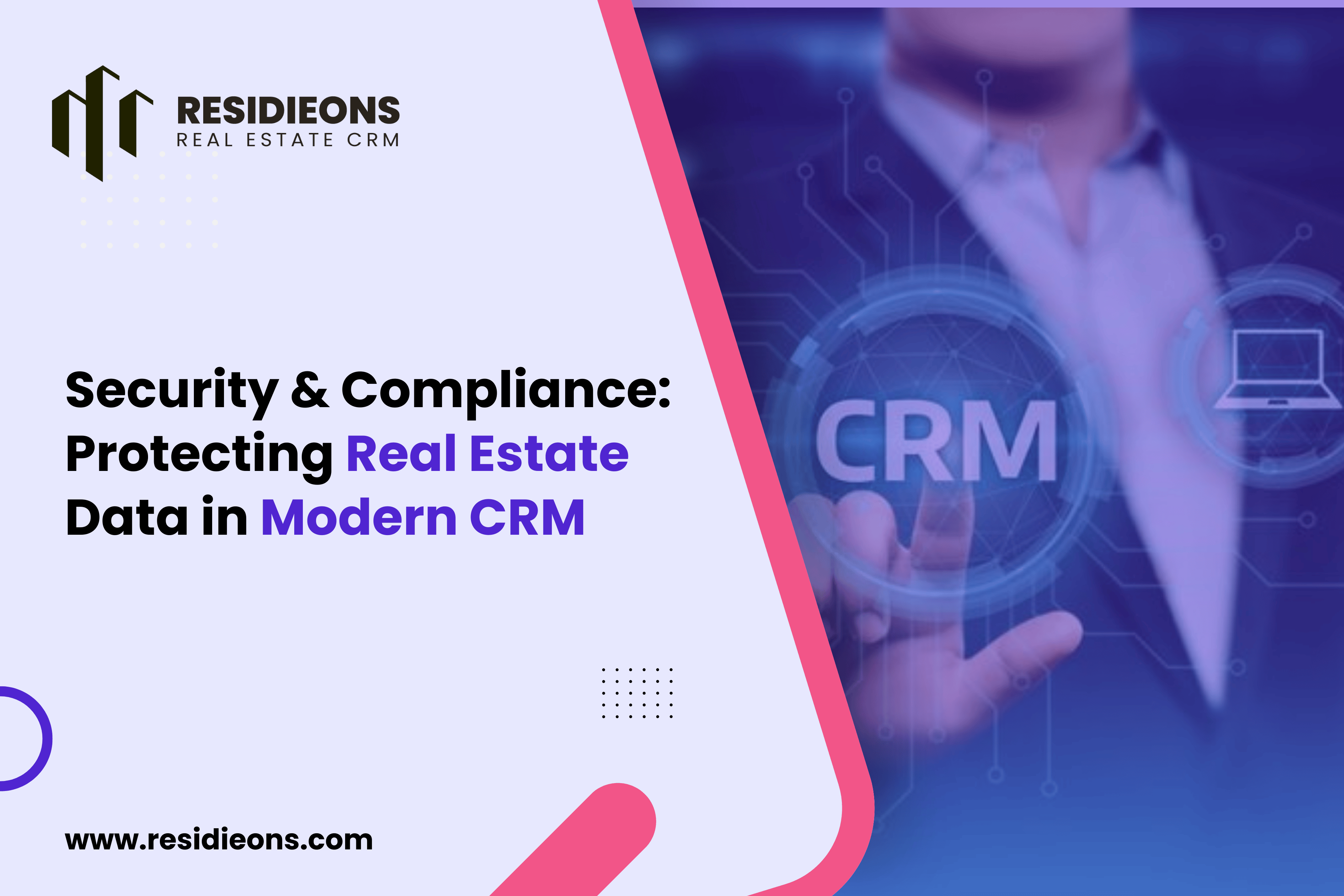
In today’s competitive real estate market, staying ahead of the competition requires more than just having a good property portfolio. Success depends on how effectively you manage client relationships, organize your leads, track deals, and handle operations. This is where a CRM system comes into play, revolutionizing how real estate businesses operate.
One of the biggest challenges in real estate is managing client relationships. With multiple clients, properties, and transactions at once, it can be easy to overlook important details or fail to follow up on potential leads. A CRM system helps streamline client management by storing all information in one centralized database.
Every interaction, whether it's an inquiry about a property or an update on a deal, is logged and tracked. This ensures that agents and brokers never miss a chance to engage with a potential client. Additionally, CRM software can automate reminders for follow-ups, scheduling meetings, and responding to inquiries, ensuring that no leads slip through the cracks.
In the fast-paced real estate environment, having access to real-time, centralized data is crucial. A CRM system ensures that you have a 360-degree view of your clients, properties, and transactions. With just a few clicks, you can access detailed client profiles, track ongoing negotiations, and analyze your portfolio's performance.
Communication is key in any business, and real estate is no exception. A CRM system enhances communication by allowing agents, brokers, and support teams to stay on the same page. With shared notes, tasks, and updates, everyone involved in a transaction is kept in the loop.
This is particularly valuable in larger teams or when managing multiple properties and clients. With CRM, team members can easily collaborate, share updates, and coordinate actions, ensuring that clients receive the best possible service. For example, when one agent is unavailable, another team member can step in seamlessly and continue managing the client’s needs.
A CRM system can help automate lead generation, saving valuable time and ensuring that no potential client is overlooked. With features like web forms, landing pages, and automated email campaigns, you can easily capture leads from your website, social media channels, or third-party platforms.
Once a lead is captured, the CRM automatically follows up, ensuring that you never miss an opportunity. Automated emails, SMS, and even personalized messages can be sent to leads, nurturing them through the buying process. This not only saves time but also helps maintain consistent engagement with prospects, leading to higher conversion rates.
Running effective marketing campaigns is essential to reaching new clients and expanding your business. A CRM system enables you to create targeted marketing campaigns based on client data and preferences. For instance, if a client is interested in luxury properties, you can send personalized emails showcasing similar listings.
Also Read :- What is real estate CRM?
CRM systems are not just for managing clients they also offer powerful tools for property and deal management. You can track property listings, including key details such as square footage, price, location, and status. This data can be easily accessed and shared with clients, speeding up the process of finding the perfect property.
In addition, the CRM system can monitor the progress of deals and transactions, reminding you of upcoming deadlines and critical milestones. This enables you to keep your clients informed and engaged, ultimately leading to faster deal closures and higher client satisfaction.
Real estate agents are often juggling numerous tasks simultaneously responding to emails, showing properties, negotiating deals, and more. A CRM software can automate many of these tasks, saving agents valuable time and improving overall productivity.
One of the most valuable features of a CRM system is its ability to generate detailed reports and analytics. These insights can help you understand where your business stands and identify areas for improvement. You can track metrics such as lead conversion rates, sales performance, client retention, and more.
Retaining clients is just as important as acquiring new ones. A CRM system enables you to provide a more personalized and responsive experience for your clients, which in turn leads to higher satisfaction and loyalty. By keeping track of your clients’ preferences, needs, and past interactions, you can tailor your services to meet their expectations.
Whether it’s sending personalized property recommendations, offering exclusive deals, or simply checking in with past clients, a CRM helps foster long-term relationships. Satisfied clients are more likely to return for future transactions and refer your services to others, driving more business your way.
As your real estate business grows, so does the need for effective management. CRM systems are scalable, meaning they can evolve with your business. Whether you're expanding into new markets, adding more agents to your team, or increasing your property listings, a CRM system can handle the increase in data and workflow.
In today’s digital age, a CRM system is not just a tool for managing contacts, it's a comprehensive solution that can transform your entire real estate business. From improving client management and communication to automating lead generation and sales processes, CRM systems offer unparalleled advantages.
Real Estate Game with CRM software, you can enhance productivity, make data-driven decisions, improve client satisfaction, and ultimately drive growth for your real estate business. As the real estate market continues to evolve, adopting innovative technologies like CRM will be key to staying competitive and delivering exceptional value to your clients. Make the move today and watch your business reach new heights.

The real estate market is changing very quickly today, and if you want to s
Read More...


If you are in the real estate business, you already know how tou
Read More...
In today’s competitive real estate market, managing leads, foll
Read More...